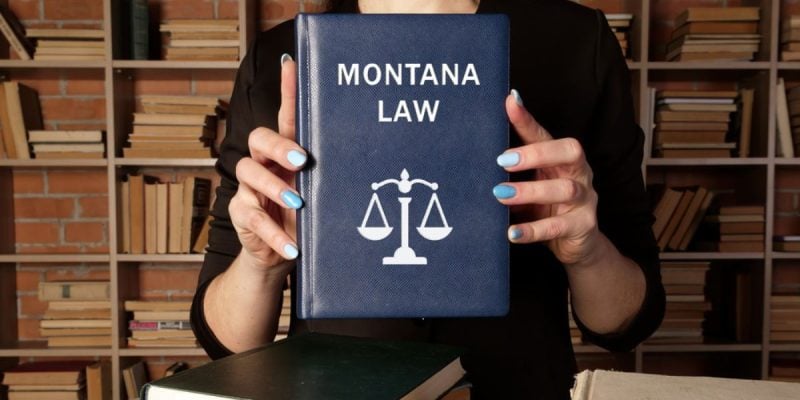Montana has officially made all forms of online gambling illegal. Senate Bill 555, the new state law, took effect Oct. 1. The legislation targets sweepstakes casinos and online prediction markets that operate without state regulation.
The bill marks a significant milestone in Montana’s effort to control gambling activities. It exposes unlicensed operators to severe legal penalties, imposing felony charges on anyone who runs or advertises such sites.
Details of Montana’s statewide online gambling prohibition
The Montana Legislature passed Senate Bill 555 in April, and Gov. Greg Gianforte signed it in May. The law expands the definition of internet gambling to include nearly all online wagering activities.
It bans online casinos, mobile apps and other online platforms that relay or accept gambling information, take wagers in any currency, or provide payouts. Operating such sites is now a felony punishable by up to 10 years in prison and fines of as much as $50,000.
Montana’s remaining legal betting options
Before this law, Montana already allowed only limited legal gambling. Several tribal casinos offer electronic gaming machines, and sports betting is permitted solely through the Montana Lottery.
The state operates one legal sports betting app, Sports Bet Montana, which lets users create bet slips and manage accounts remotely. However, bets must still be placed in person at licensed retail outlets.
Montana has not licensed or regulated any online casino-style gambling, online poker or other betting platforms.
Lawmakers target sweepstakes casinos, betting markets
The new law primarily targets sweepstakes casinos and online prediction markets, which have gained national popularity. Lawmakers say these platforms exploit loopholes to simulate real-money gambling without proper oversight.
Sweepstakes casinos allow players to use “sweep coins,” digital tokens that can be redeemed for cash. While marketed as social or free-to-play games, players can purchase additional coins with real money—effectively making them gambling platforms.
State officials say such sites offer no consumer protections. Players have no guarantee that games are fair or that winnings and withdrawals will be honored.
A WalletHub report earlier this year ranked Montana as the nation’s third most gambling-addicted state, with about 2.5% of residents meeting criteria for a gambling disorder. Lawmakers cited that statistic as evidence that online betting needs tighter restrictions.
Prediction markets become a legal flashpoint
Montana’s crackdown also extends to prediction markets and wagering exchanges, where users buy and sell shares based on real-world outcomes. These markets initially gained attention for political and entertainment bets but have since expanded into sports.
One major operator, Kalshi, continues to serve users nationwide, including in Montana. Earlier this year, CEO Tarek Mansour said the company is unconcerned about state bans because it operates under federal regulation. That stance, however, puts the company at odds with Montana’s new law, which explicitly bans any online gambling platform accessible within the state.
Lawmakers say ban aims to protect consumers
Supporters of SB 555 say the measure is meant not only to curb gambling but also to protect consumers from unsafe and unregulated websites. “These sites aren’t accountable to anyone,” one lawmaker said during debate.
“If your money disappears or the game doesn’t pay out, you have no one to call. We want to make sure Montanans aren’t exposed to that kind of risk.”
Although few states have taken such a strong stance, Montana legislators believe the law will close loopholes in outdated gambling rules and deter illegal online operators from targeting residents.
Future of gambling regulation in the state
Montana’s gambling market is now tightly regulated, and all forms of internet gambling are illegal. The only legal options remain face-to-face tribal gaming and sports bets placed at licensed Montana Lottery retailers.
With enforcement underway, unlicensed operators still serving players in the state could soon face prosecution—potentially setting a precedent for how other states address the growing controversy over online sweepstakes and prediction platforms.









